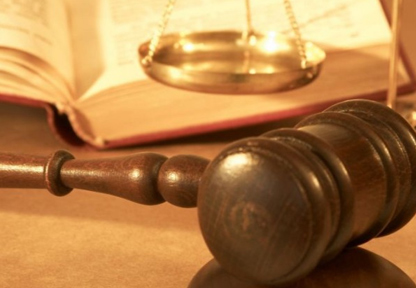Bankruptcy Discharge Katy Texas
Bankruptcy Discharge Katy Texas, There are many other provisions of the Bankruptcy Code that may affect your situation. This information sheet contains only general principles of law and is not a substitute for legal advice. If you have questions or need further information as to how the bankruptcy laws apply to your specific case, you should consult with your lawyer.
WHAT IS A DISCHARGE?
The filing of a Chapter 7 petition is designed to result in a discharge of most of the debts you listed on your bankruptcy schedules. A discharge is a Court Order that says you do not have to repay your debts, but there are a number of exceptions. Debts which may not be discharged in your chapter 7 case include, for example, most taxes, child support, alimony, and student loans; court-ordered fines and restitution; debts obtained through fraud or deceptions; and personal injury debts caused by driving while intoxicated or taking drugs. Your discharge may be denied entirely if you, for example, destroy or cannot ask you to pay any debts which have been discharged. You can only receive a Chapter 7 discharge once every six (6) years.
WHAT ARE THE POTENTIAL EFECTS OF A DISCHARGE?
The fact that you filed bankruptcy can appear on your credit report for as long as ten (10) years. Thus, filing a bankruptcy petition may affect your ability to obtain credit in the future. Also, you may not be excused from repaying any debts that were not listed on your bankruptcy schedules or that you incurred after you filed bankruptcy.
WHAT ARE THE EFFECTS OF REAFFIRMING A DEBT?
After you file your petition, a creditor may ask you to reaffirm a certain debt or you may seek to do so on your own. Reaffirming a debt means that you sign and file with the Court a legally enforceable document, which states that you promise to repay all or a portion of a debt that may otherwise have been discharged in your bankruptcy case. Reaffirmation agreements must generally be filed with the Court within sixty (60) days after the first meeting of creditors.
Reaffirmation agreements are strictly voluntary-they are not required by the Bankruptcy Code or other state or federal law. You can voluntarily repay any debt instead of signing a reaffirmation agreement, but there may be valid reasons for wanting to reaffirmation a particular debt.
Reaffirmation agreements must not impose an undue-burden on you or your dependents and must be in your best interest. If you decide to sign a reaffirmation agreement, you may cancel it at any time before the Court issues your discharge order or within sixty (60) days after the reaffirmation agreement was filed with the Court, whichever is later. If you reaffirm a debt and fail to make the payments required in the reaffirmation agreement, the creditor can take action against you to recover any property that was given as security for the loan and you may remain personally liable for any remaining debt.
OTHER BANKRUPTCY OPTIONS
You have a choice in deciding what chapter of the Bankruptcy Code will best suit your needs. Even if you have already filed for relief under Chapter 7, you may be eligible to convert your case to a different chapter.
Chapter 7 is the liquidation chapter of the Bankruptcy code. Under Chapter 7, a trustee is appointed to collect and sell, if economically feasible, all property that you own that is not exempt from these actions.
Chapter 11 is the reorganization chapter most commonly used by businesses, but it is also available to individuals. Creditors vote on whether to accept or reject a plan, which also must be approved by the Court. While the debtor normally remains in control of the assets, the Court can order the appointment of a trustee to take possession and control of the business.
Chapter 12 offers bankruptcy relief to those who qualify as family farmers. Family farmers must propose a plan to repay their creditors over a three-to-five year period and it must be approved by the Court. Plan payments are made through a Chapter 12 trustee, who also monitors the debtor’s farming operations during the pendency of the plan.
Finally, Chapter 13 generally permits individuals to keep their property by repaying creditors out of their future income. Each Chapter 13 debtor writes a plan which must be approved by the Bankruptcy Court. The debtor must pay the Chapter 13 trustee the amounts set forth in their plan. Debtors receive a discharge after they complete their Chapter 13 repayment plan. Chapter 13 is only available to individuals with regular income whose debts do not exceed $1,000,000 ($250,000 in unsecured debts and $750,000 in secured debts).
Our toll-free telephone number is at 1-866-912-9832. You need to learn about all of your options including information about credit, debt, bill consolidation services and federal bankruptcy law. Please call us at 1-866-912-9832 so that we can discuss your case.You can also visit our web site: www.busby-lee.com. Our attorney fees are reasonable, competitive, and court- approved. It is important that you call us soon. Our office is conveniently located near the Galleria and Highway 59 on Hillcroft between Richmond and Westheimer. We also maintain a branch Katy, Texas office at 1804 Snake River Road, Suite, C Katy, Texas 77449 Call us toll-free at 1-866-912-9832 for directions to our office.
We provide bankruptcy services in the greater Houston metro area including the cities of Katy, Sugarland, Pearland, Friendswood, Clear Lake and Galveston. We also handle cases from The Woodlands, Spring and Tomball and cases in Baytown and Channelview.
We handle bankruptcy cases in all of these counties: Brazoria, Chambers, Galveston, Matagorda, Austin, Brazos, Colorado, Fayette, Fort Bend, Grimes, Harris, Madison, Montgomery, San Jacinto, Walker, Waller, Wharton
[paypal-donation]













